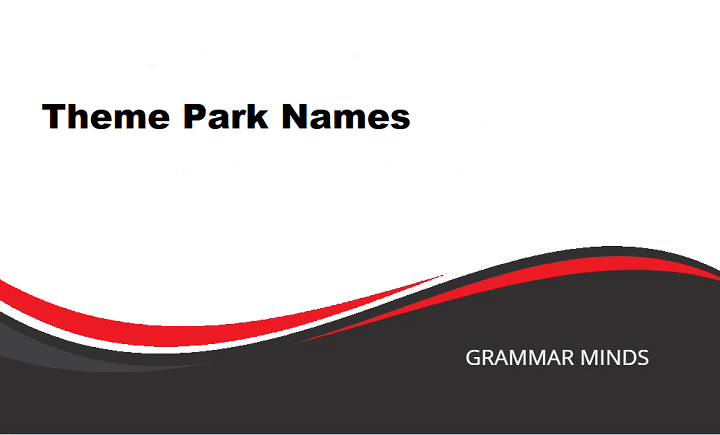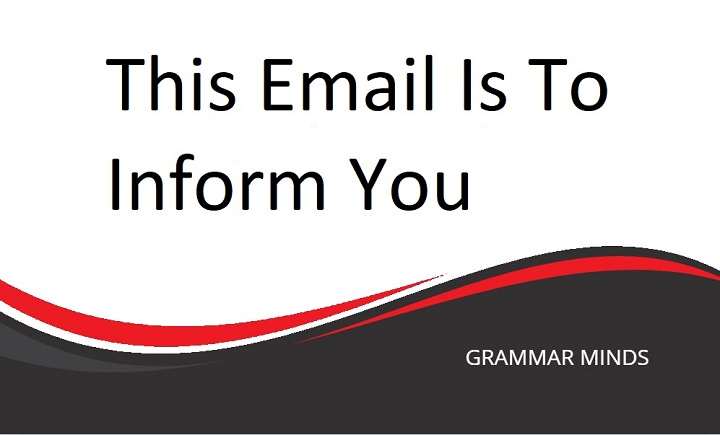Choosing a theme park name is a pivotal decision that can impact the success of the park. A well-thought-out name resonates with visitors, conjures a sense of wonder, excitement, and adventure, and establishes a strong identity in the minds of potential guests. The perfect theme park name serves as a window into the park’s personality, its attractions, and the kind of experience it offers. In this article, we’ll delve into the importance of selecting the right theme park name, explore various naming strategies, and highlight examples of iconic names that have stood the test of time.
The Importance of a Good Theme Park Name
A theme park’s name is more than just a label—it’s the first impression that guests get of the park. A name has the power to set expectations, build excitement, and create an emotional connection with visitors before they even step through the gates. When a park’s name is memorable and evocative, it becomes easier to market and brand the overall experience.
Building a Strong Brand Identity
A successful theme park name plays a vital role in building a brand identity. It must capture the essence of the park’s theme, whether it’s thrilling roller coasters, family-friendly attractions, or an immersive storytelling experience. A strong name aligns with the overall vision and branding of the park, helping guests understand what type of experience they can expect.
- Memorability: A name that’s easy to remember will stick in visitors’ minds and make them more likely to talk about it to others.
- Emotional Connection: A great name elicits excitement, nostalgia, or curiosity, compelling potential visitors to want to explore.
- Relevance: The name should reflect the theme of the park, whether it’s adventure, magic, or nature. It helps define the target audience and set the tone for the overall experience.
Marketing and Promotion
From a marketing perspective, the right theme park name opens the door to a range of promotional strategies. A catchy and well-aligned name can enhance branding efforts, making it easier to create logos, slogans, and social media handles that are attractive to the target audience. Theme parks with iconic names like “Disneyland” or “Universal Studios” benefit from instant recognition, creating a strong presence in advertisements, billboards, and commercials.
- Brand Recognition: A powerful name helps build brand recognition over time. Names like “Six Flags” or “Cedar Point” immediately conjure images of roller coasters and excitement for thrill-seekers.
- Domain and Social Media Availability: In the digital age, it’s crucial to consider the availability of domain names and social media handles that align with the theme park’s name. Consistency across digital platforms helps build a cohesive brand.
Strategies for Naming a Theme Park
The process of naming a theme park involves more than brainstorming catchy phrases. It requires careful thought, creativity, and strategic planning to ensure the name resonates with the target audience and reflects the essence of the park. Below are some popular naming strategies used in the theme park industry.
Descriptive Names
Descriptive names are straightforward and clearly explain what visitors can expect from the park. These names work best when the park has a specific theme or is located in a region known for particular attractions. Descriptive names can also emphasize the unique features of the park.
- Examples:
- Adventureland: This name implies a world of thrilling escapades, perfect for an adventure-themed park.
- Water World: Guests immediately know to expect water rides, slides, and aquatic adventures.
- Wild Safari Park: Clearly communicates that this is a wildlife and nature-centric experience.
Fantasy and Imagination-Inspired Names
One of the most popular approaches for theme parks, especially those that focus on fantasy, magic, and storytelling, is to select names that spark the imagination. These names are ideal for parks that emphasize escapism and take visitors to otherworldly realms.
- Examples:
- Disneyland: Combining “Disney,” a household name associated with magic and imagination, with “land,” creating a place where dreams come true.
- Wonderland: A name that conveys a whimsical and enchanting experience for children and families.
- Enchanted Kingdom: This name suggests a magical realm of kings, queens, and fairy-tale adventures.
Geographical Names
Geographical names help identify where the park is located or the environment it represents. For example, if a park is located near a beach, mountains, or a particular landmark, incorporating that feature into the name helps with branding and creating a sense of place.
- Examples:
- California Adventure: This park emphasizes its location in California while promising a broad range of thrilling activities.
- SeaWorld Orlando: By including the city, it adds regional appeal and informs guests of its aquatic-themed experience.
- Dollywood: Named after its owner, country music legend Dolly Parton, and rooted in its Appalachian location.
Character or Celebrity Names
Associating a theme park with a well-known character or celebrity gives it an immediate branding advantage. Visitors already have a relationship with the name, and it carries with it pre-existing emotions and expectations. These names work especially well for parks owned by major entertainment brands or public figures.
- Examples:
- Universal Studios: Drawing on the vast library of Universal Pictures, the name suggests an experience full of famous movie characters and settings.
- Legoland: Built on the popularity of LEGO toys, this name attracts families and children who are familiar with the LEGO brand.
- Marvel Adventure: A fictional example, but such a name would immediately draw fans of Marvel superheroes.
Names with Action Verbs
Names that include action verbs or dynamic language create excitement and energy, inspiring visitors to feel that they are part of the adventure. These names work well for parks centered around high-energy activities such as thrill rides, shows, and physical challenges.
- Examples:
- Exploration Station: Invites guests to embark on a journey of discovery.
- RaceWorld: Evokes speed, adrenaline, and excitement, suggesting a theme focused on cars and races.
- Soar Park: Implies flying and high-altitude thrills, perfect for a park centered around aviation and adventure.
The Role of Storytelling in Theme Park Names
One of the key elements in creating a successful theme park name is incorporating a sense of storytelling. A well-crafted name tells a story or invites guests into a world of narrative adventure. This is particularly important for parks that aim to immerse visitors in themed worlds, where the attractions, décor, and overall atmosphere are deeply integrated into a storyline.
Engaging Visitors Through Narrative
Theme park names should be more than just titles—they should evoke a narrative that visitors can immediately latch onto. Whether it’s a land of dinosaurs, a fantasy kingdom, or a futuristic city, the name can be the first chapter in the park’s story. Themed parks like “Jurassic World” or “Pirates Cove” capitalize on this concept, letting guests know they’re stepping into a specific universe with rich backstories and adventures to explore.
Creating a Sense of Place
A well-crafted theme park name also creates a sense of place. For example, names like “Tomorrowland” or “Mystic Falls” transport visitors to an imagined location that feels immersive and real. These names work in tandem with the park’s design, attractions, and atmosphere to deliver a cohesive experience that visitors will want to return to.
Examples of Iconic Theme Park Names
Let’s take a closer look at some theme parks that have achieved iconic status, largely due to the effectiveness of their names.
Disneyland
Arguably the most famous theme park name in the world, Disneyland has become synonymous with magic, family, and entertainment. The combination of “Disney” and “land” suggests a world that is wholly owned by the imagination of Walt Disney, a place where anything is possible. The name works on multiple levels, including the nostalgia and emotional attachment many have to the Disney brand.
Universal Studios
Universal Studios immediately conjures images of blockbuster movies and world-class entertainment. The name positions the park as a haven for movie lovers and thrill-seekers alike, promising a universe of experiences related to film, television, and storytelling. The “studio” element adds an extra layer of appeal, suggesting a behind-the-scenes glimpse into Hollywood magic.
Six Flags
Six Flags is a name that combines history and excitement. Originally, the six flags represented the six different nations that had governed Texas, where the park originated. Over time, the name has evolved to become synonymous with thrill rides, roller coasters, and larger-than-life adventures. The simplicity of the name ensures it is easy to remember while maintaining a sense of tradition.
Choosing a theme park name is an art form that requires a balance of creativity, branding expertise, and a deep understanding of the target audience. A well-chosen name can transport visitors into a world of excitement and fun, creating memories that last a lifetime. Whether a park focuses on adventure, fantasy, or a specific geographical location, the name should align with the park’s core values, vision, and overall experience.
Ultimately, a great theme park name is more than just a label—it is a promise of the adventure, thrill, or magic that lies inside. By carefully considering the strategies outlined above, theme park developers can create names that captivate the imagination, build strong brand identities, and stand the test of time.







